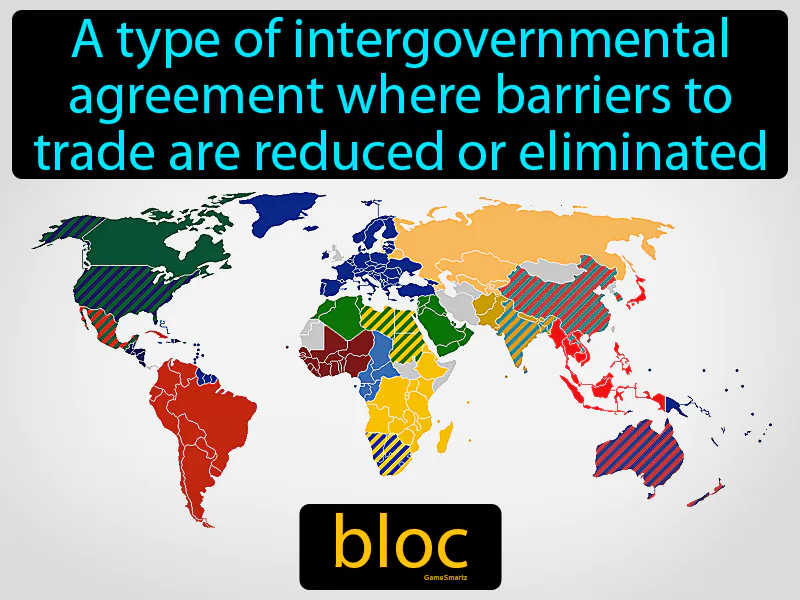Bloc
Bloc: Easy to understand
In recent history, blocs like the European Union (EU) emerged to foster cooperation and economic growth by reducing trade barriers among member countries. They were important because they promoted peace and economic stability by encouraging countries to work together instead of competing. The concept of a bloc responded to the need for economic collaboration after conflicts like World War II, helping to avoid further wars through interconnected economies. Today, blocs still matter because they affect jobs, prices, and the availability of goods, impacting daily life. For example, when the UK left the EU, known as Brexit, it affected trade and travel for many people, highlighting how such agreements can significantly impact citizens' lives.

Practice Version

Bloc: A type of intergovernmental agreement where barriers to trade are reduced or eliminated. bloc. In History, a bloc is a group of countries that join together for economic or political cooperation.